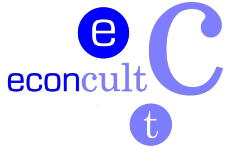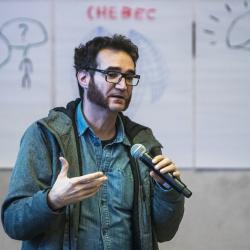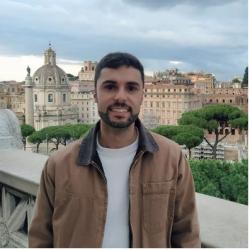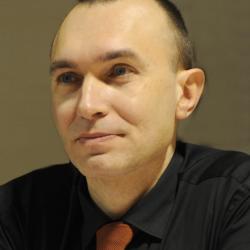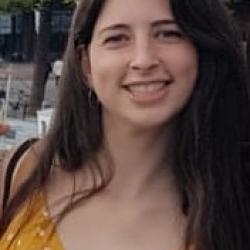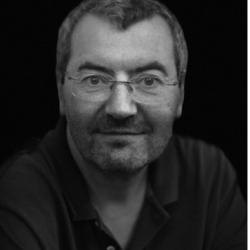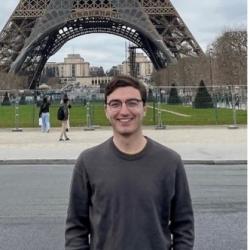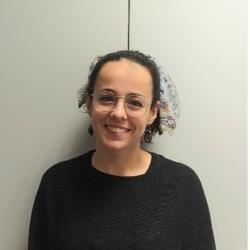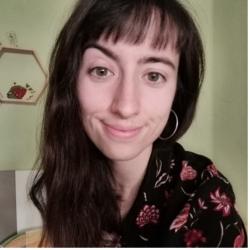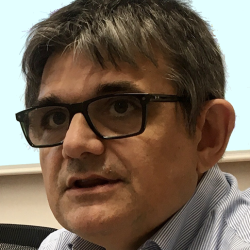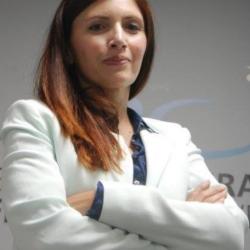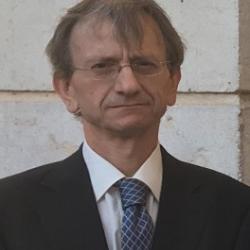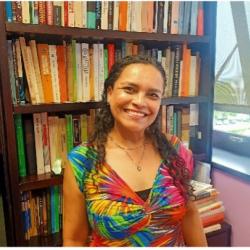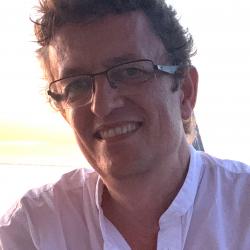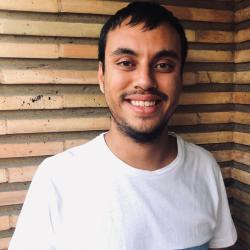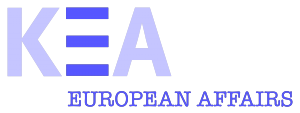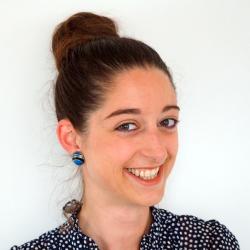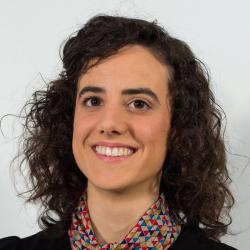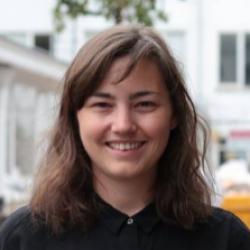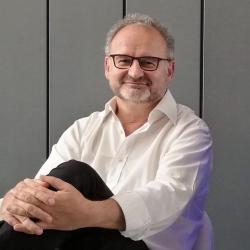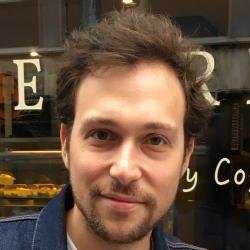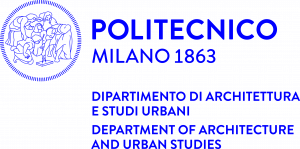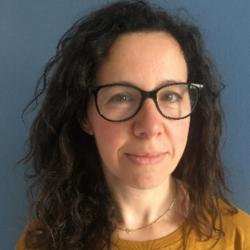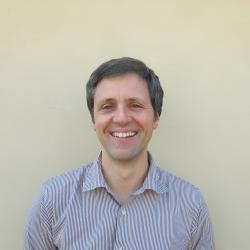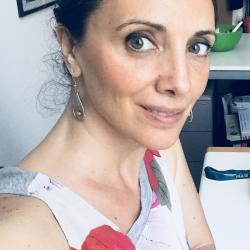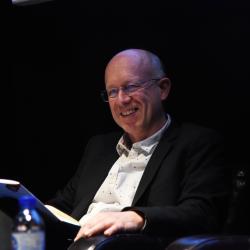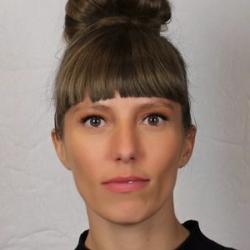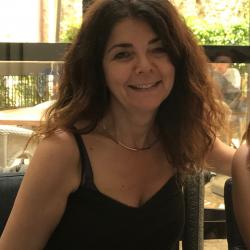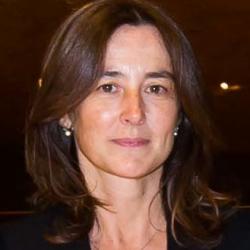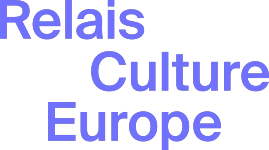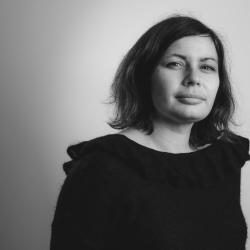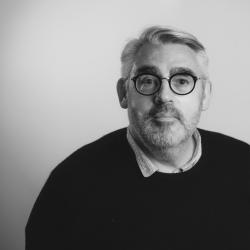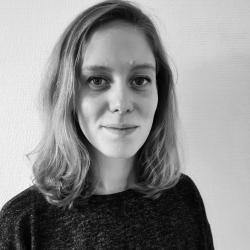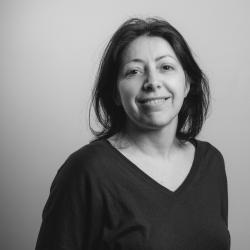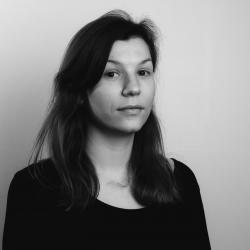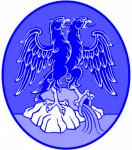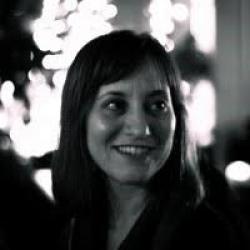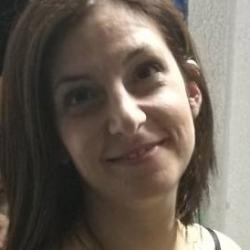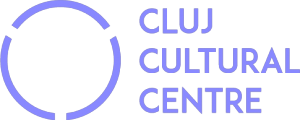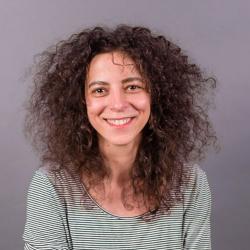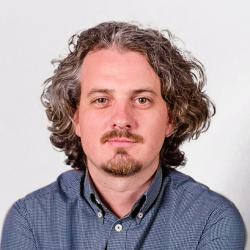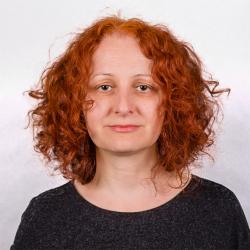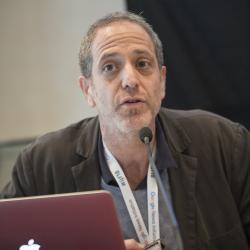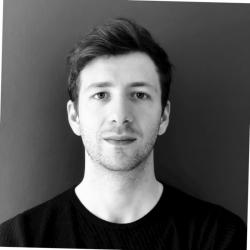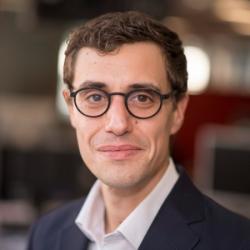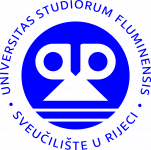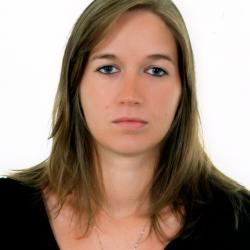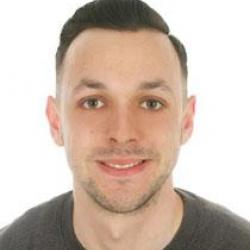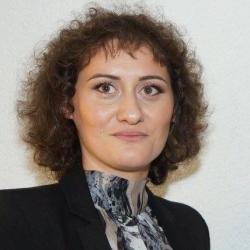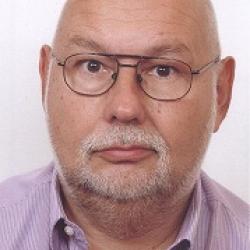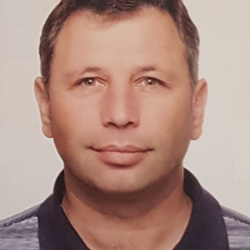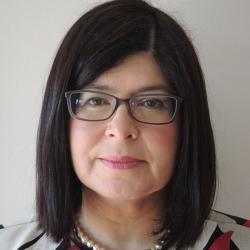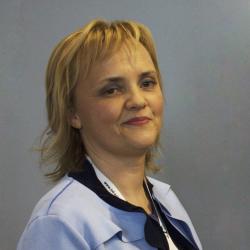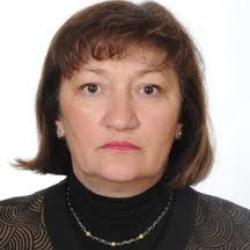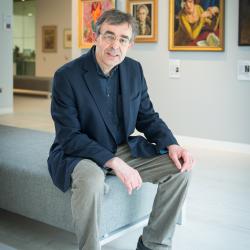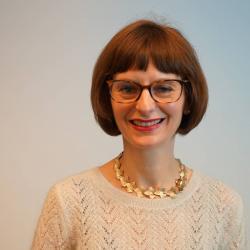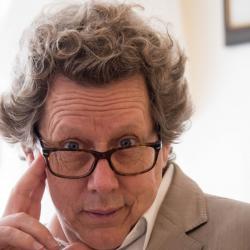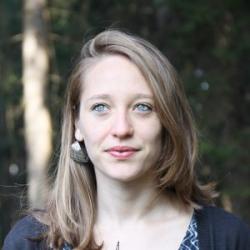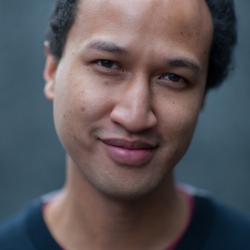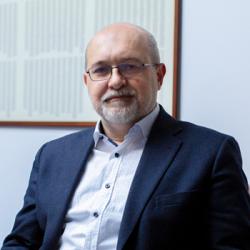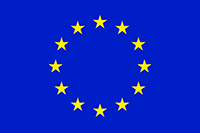The Research Unit in Cultural Economics was established in the Department of Applied Economics of the Universitat de València in 1999. Since then, it has developed an ongoing research work in the field of Cultural Economics, becoming one of the reference centres at national and international level. Since the middle of the first decade of the 21st century, its internationalisation process has been remarkable, collaborating with projects both in Latin America and Europe. Econcult is a heterogeneous network of researchers from different universities and external collaborators, coordinated by Professor Pau Rausell.
The Research Unit in Cultural Economics was established in the Department of Applied Economics of the Universitat de València in 1999. Since then, it has developed an ongoing research work in the field of Cultural Economics, becoming one of the reference centres at national and international level. Since the middle of the first decade of the 21st century, its internationalisation process has been remarkable, collaborating with projects both in Latin America and Europe. Econcult is a heterogeneous network of researchers from different universities and external collaborators, coordinated by Professor Pau Rausell.
KEA European Affairs is an international policy design research centre specialised in culture, creative industries as well as sport, education and youth… Since 1999, KEA has been a pioneer in the field of culture economics and creative industry policy. KEA has consolidated its brand and expertise in monitoring and evaluation of cultural policies over the years as a result of a track-record of successfully concluded assignments and studies. KEA is expert for the European Commission, European Parliament, the Council of Europe, the European Investment Fund and the World Intellectual Property Organisation.
KEA European Affairs is an international policy design research centre specialised in culture, creative industries as well as sport, education and youth… Since 1999, KEA has been a pioneer in the field of culture economics and creative industry policy. KEA has consolidated its brand and expertise in monitoring and evaluation of cultural policies over the years as a result of a track-record of successfully concluded assignments and studies. KEA is expert for the European Commission, European Parliament, the Council of Europe, the European Investment Fund and the World Intellectual Property Organisation.
Politecnico di Milano is a scientific-technological university, which trains engineers, architects and industrial designers. The University has always focused on the quality and innovation of its teaching and research developing a fruitful relationship with business and manufacturing worlds, as well as the public and third sectors, by means of experimental research and technological transfer. The Department of Architecture and Urban Studies is one of the leading European R&D and higher educational hubs in this domain. Moreover, it has built a sound expertise in mobilizing and leading the development of urban pilot stakeholders within a number of EU funded, national and regional projects ranging from the domain of Smart Cities to those of Open and Big Data, Participatory Policy Design and Inclusive City Governance.
Politecnico di Milano is a scientific-technological university, which trains engineers, architects and industrial designers. The University has always focused on the quality and innovation of its teaching and research developing a fruitful relationship with business and manufacturing worlds, as well as the public and third sectors, by means of experimental research and technological transfer. The Department of Architecture and Urban Studies is one of the leading European R&D and higher educational hubs in this domain. Moreover, it has built a sound expertise in mobilizing and leading the development of urban pilot stakeholders within a number of EU funded, national and regional projects ranging from the domain of Smart Cities to those of Open and Big Data, Participatory Policy Design and Inclusive City Governance.
The University of Barcelona is one of the oldest in Europe, active since the Renaissance times, and runs a Cultural Management Program since 1989, led from the beginning by professor Lluís Bonet. The Cultural Management Program has a PhD research line, with 7 new PhD students every year, and offers 3 MA and several postgraduate degrees on cultural policy and management. Its team of researchers and lecturers have a large interdisciplinary profile, ranging from economics and sociology to political science, law and anthropology.
The University of Barcelona is one of the oldest in Europe, active since the Renaissance times, and runs a Cultural Management Program since 1989, led from the beginning by professor Lluís Bonet. The Cultural Management Program has a PhD research line, with 7 new PhD students every year, and offers 3 MA and several postgraduate degrees on cultural policy and management. Its team of researchers and lecturers have a large interdisciplinary profile, ranging from economics and sociology to political science, law and anthropology.
Supported by the French Ministry of Culture, the National Centre of Cinema and Animation, the European Commission and a number of French local authorities, Relais Culture Europe is a 20-year-old no-profit association active in the fields of European information, action and reflection to the benefit of all actors (citizen/NGO, private and public) active in the cultural, creative and media sectors.
Supported by the French Ministry of Culture, the National Centre of Cinema and Animation, the European Commission and a number of French local authorities, Relais Culture Europe is a 20-year-old no-profit association active in the fields of European information, action and reflection to the benefit of all actors (citizen/NGO, private and public) active in the cultural, creative and media sectors.
DAEM S.A. (City of Athens IT Company) is the oldest and most significant Local Government IT Company, as it has been operating since 1983, aimed at providing e-Governance to local government organizations, public administration and other authorities and organizations. The development and promotion of new innovative services which are fundamental to the smart and sustainable city idea, lies at the heart of DAEM’s interest and is a strategic objective at the city level. The specialized EU Projects Sector maintains excellent experience and background in R&D activities in diverse domains such as eGovernance, cultural heritage, social inclusion, eParticipation etc.
DAEM S.A. (City of Athens IT Company) is the oldest and most significant Local Government IT Company, as it has been operating since 1983, aimed at providing e-Governance to local government organizations, public administration and other authorities and organizations. The development and promotion of new innovative services which are fundamental to the smart and sustainable city idea, lies at the heart of DAEM’s interest and is a strategic objective at the city level. The specialized EU Projects Sector maintains excellent experience and background in R&D activities in diverse domains such as eGovernance, cultural heritage, social inclusion, eParticipation etc.
Initially intended to prepare the city’s candidacy for the European Capital of Culture 2021, Cluj Cultural Centre implements a comprehensive program addressing strategic challenges of society. This program addresses interdisciplinary projects which approach various themes: contemporary art, well-being, cultural and artistic education, urban regeneration, community connection, social inclusion, cultural industries, rural development, ethnography of imagined worlds, cultural sector’s capacity-building, social and urban innovation, international cooperation, research, and policies.Cluj Cultural Centre has 95 members: cultural institutions and the local cultural organizations, Cluj universities, business clubs and clusters, civil society organizations, local and regional administration.
Initially intended to prepare the city’s candidacy for the European Capital of Culture 2021, Cluj Cultural Centre implements a comprehensive program addressing strategic challenges of society. This program addresses interdisciplinary projects which approach various themes: contemporary art, well-being, cultural and artistic education, urban regeneration, community connection, social inclusion, cultural industries, rural development, ethnography of imagined worlds, cultural sector’s capacity-building, social and urban innovation, international cooperation, research, and policies.Cluj Cultural Centre has 95 members: cultural institutions and the local cultural organizations, Cluj universities, business clubs and clusters, civil society organizations, local and regional administration.
Worldcrunch is a Paris-based English-language news website that seeks to compensate for the decline of foreign coverage in English-language media by providing the most relevant content from the best global sources – including high quality international media outlets and partner organizations such as Le Monde, Le Temps, Die Welt, Folha de Sao Paulo, La Stampa, Caixin Media, Kommersant, Gazeta Wyborcza, Hurriyet and more than 20 other from Europe and beyond. The Worldcrunch website has attracted an average of 2-million Page Views/month in 2016 and its users are based in the US, Europe, Latin America and Asia.
Worldcrunch is a Paris-based English-language news website that seeks to compensate for the decline of foreign coverage in English-language media by providing the most relevant content from the best global sources – including high quality international media outlets and partner organizations such as Le Monde, Le Temps, Die Welt, Folha de Sao Paulo, La Stampa, Caixin Media, Kommersant, Gazeta Wyborcza, Hurriyet and more than 20 other from Europe and beyond. The Worldcrunch website has attracted an average of 2-million Page Views/month in 2016 and its users are based in the US, Europe, Latin America and Asia.
MESOC consortium is supported by its External Board Advisory gathering qualified external experts from different fields such as urban development policies, cultural heritage, etc. It advises and helps the consortium to address and overcome any technical issues. The Extended Advisory Board also aims to establish and maintain an open level of communication between project partners and key statistical and policy research institutions. In doing so, the project aims to make a direct connection with existing international classifications and standards for measuring the impact of culture in society.
MESOC consortium is supported by its External Board Advisory gathering qualified external experts from different fields such as urban development policies, cultural heritage, etc. It advises and helps the consortium to address and overcome any technical issues. The Extended Advisory Board also aims to establish and maintain an open level of communication between project partners and key statistical and policy research institutions. In doing so, the project aims to make a direct connection with existing international classifications and standards for measuring the impact of culture in society.

